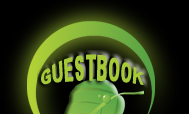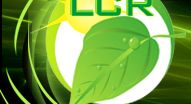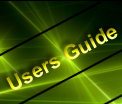




Web: DesignCarte'
Copyright © 2000 Larson Century Ranch, Inc. ~ All Rights Reserved
This page was last updated: August 2, 2010
LIBRARY



Larson Century Ranch, Inc.
P. O. Box 1982, Clarkston, WA 99403
Telephone: 509-758-5445, FAX: 509-758-5701
- Books about Non-Toxic Living
Want to educate yourself on the values of non-toxic living? Learn what effect toxins have on human health? Learn how to recover from chemical poisoning? Here are some of our recommendations. Run your mouse over the title (give it a second to load) for more information or to buy.
About Sick Buildings, Schools, Children's Exposure
- Is This Your Child's World?; How Schools and Homes Are Making Our Children Sick (Hardcover) by Doris J. Rapp
Rapp, a board-certified pediatrician with additional certifications in pediatric allergy and environmental medicine, has written this book to help parents and teachers recognize environmental illnesses and to outline steps for action in combating them. The first section describes environmentally caused illnesses and why they may be occurring. The other four sections concern sick schools and outline ways to deal with these problems. Examples of illnesses and possible treatments are included throughout the book.
- Is This Your Child (Paperback) by Doris Rapp
These are the major symptoms of potentially unrecognized allergies. Does your child suffer from any of the following?
- Allergic Nose Rub
- Eye Circles
- Red Ears
- Red Cheeks
- Eye Wrinkles
- Aggression
- Lack of Alertness
- Mottled Tongue
In this breakthrough book, Dr. Doris Rapp offers a simple yet effective approach to handling "problem" children and shows parents how to identify the common foods, chemicals, or common allergic substances that could be the culprits that cause some children or adults to feel unwell or act inappropriately. If your child is always sick, hyperactive, a slow learner, or cranky, the first question you should ask is not "What drug should be prescribed?" or "What have I done wrong as a parent?" Instead, find out the cause.
- Handbook of Common Poisonings in Children (Paperback) by Committee on Injury and Poison Prevention, American Academy of Pediatrics
Third edition of a practical manual for pediatricians of the essential information needed to assess poisoning exposures and to begin a course of action.
- 1001 Chemicals in Everyday Products, 2nd Edition (Paperback) by Grace Ross Lewis
From MSG in food to perchloroethylene in dry cleaning, this AZ guide provides clear, no-nonsense information on the use and health effects of hundreds of chemicals found in food, medicines, cosmetics, cleaning solutions, lawn and garden products, and more. Includes: entries listing products, uses, precautions, and synonyms; direct answers to over 250 frequently asked questions on everyday chemicals; handy product and chemical synonym indexes; and a nationwide listing of Poison Control Centers.
- The Silent Killer: Indoor Air Pollution (Paperback) by Pete Billac
Pete Billac is an engaging author mixing humor, wit, and and easy reading style to convey information about the number one health concern for all of us:indoor air pollution, telling how our homes and our offices have become the havens for molds (some toxic and lethal), bacteria, chemical contamination, and how our heating and cooling systems spread these contaminants through our homes and offices, leading to asthma and many other lung disorders as well as other very serious diseases.
- Healthy Living in a Toxic World: Simple Ways to Protect Yourself & Your Family from Hidden Health Risks (Paperback) by Cynthia E. Fincher
Dr. Cynthia Fincher, Ph.D. in Clinical Health Psychology and Behavioral Medicine explains the myths and the science of how chemicals we encounter in daily life can effect our health, providing a framwork to understand how neurotoxic chemicals affect your health, where to look for them, and how regulatory and political processes allow the real danger to perpetuate. This book provides an interesting and balanced perspective on real health risks and reasonable precautions you can take to protect yourself and your family.
- Living Healthy in a Toxic World: Simple Steps to Protect You and Your Family from Everyday Chemicals, Poisons, and Pollution (Paperback) by David Steinman, Michael R. Wisner, R. Michael Wisner
About MCS, Environmental Illness, Recovery
- Chemical Sensitivity (Paperback) by Sherry Rogers
This 42-page (not including references) book discusses, nutritional status, genetic changes, proposed mechanism behind this spreading phenomenon, and an absolutely fascinating section discussing evidence implicating elevated chloral hydrate levels in MCS. Chloral hydrate is the chemical used in "slipping a mickey" that makes you pass out. This partially explains the severity of MCS "brain fog." The book discusses major chemicals and foods MCS sufferers (and ordinary persons as well) should steer clear of-and yet it is these substances found in things we are exposed to every day.
- Chemical Sensitivity: Tools, Diagnosis and Method of Treatment, Volume IV (Hardcover) by William J.Rea,
Environmental Health Center, Dallas, TX. Part four of a four-volume set on environmental sensitivity or clinical ecology. Focuses on diagnostic and treatment practices for caring for chemically sensitive patients for clinicians.
- Our Toxic World: A Wake Up Call (Paperback) by Doris Rapp
This book was written to increase your awareness about the potentially tragic, harmful effects of the numerous chemicals to which we are all exposed on a daily basis and to help you figure out when and where you were exposed and discuss the many different ways chemicals can affect you and your loved ones. Dr. Doris Rapp is Board certified in Environmental Medicine, Pediatrics and Allergies.
- Allergic to the Twentieth Century: The Explosion in Environmental Allergies--From Sick Buildings to Multiple Chemical Sensitivity (Hardcover) by Peter Radetsky, Bill Phillips
Radetsky's book is a comprehensive study of MCS case histories, the relationship of MCS to Gulf War syndrome, medicolegal difficulties in establishing MCS as a "real" disease entity, and the possible cause(s) of MCS. Out of print, but available from private sellers.
- Multiple Chemical Sensitivity: A Survival Guide (Paperback) by Pamela Reed Gibson Ph.D.
Pamela Reed Gibson, Ph.D., Associate Professor of Psychology at James Madison University in Harrisonburg, Virginia, and author of numerous journal articles and regularly presents papers on MCS and environmental health topics, informs what is known about MCS and its symptoms and provides step-by-step advice for coping with the condition, including taking steps to make your home safe, getting professional help, and mobilizing the support of family and friends.
- Clear Body Clear Mind by L. Ron Hubbard.
The book outlines a detoxification program aimed at eliminating the build-up of destructive chemicals in the body (including narcotics, prescription drugs, pesticides and preservatives). The program stresses exercises, sauna visits, vitamin supplements and plenty of water and fresh vegetables. The book also includes testimony from people who've successfully completed the program.
Other
- Handbook of Poisoning in Dogs and Cats (Paperback) by Alexander Campbell, Michael Chapman
Quick-reference handbook to help veterinary clinicians and their staff manage cases of poisoning in dogs and cats. Each agent, or group of agents, has a separate chapter covering its effects in either the cat or dog. The chapters provide all the information necessary for the immediate management of a poisoning case.
- Death in the Air: Globalism, Terrorism & Toxic Warfare (Hardcover) by Leonard G. Horowitz
A theory on why toxins are allowed to continue to poison our world's population.






